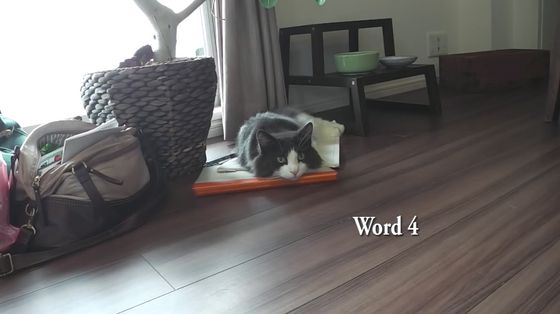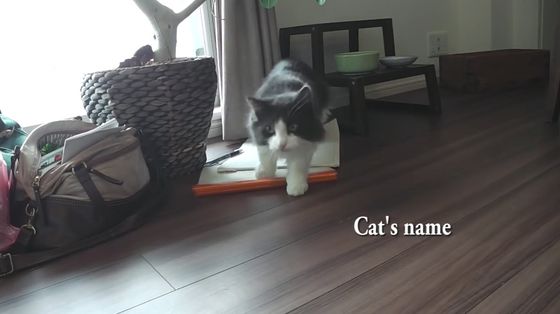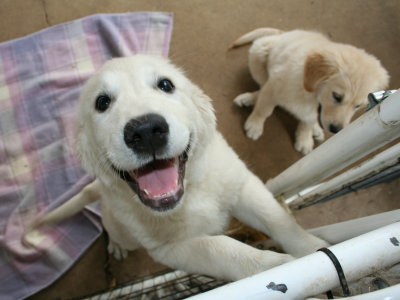Research revealed that cats recognize their names properly

by
A cat with a strong image of free-ranging life may not know well if the owner calls the name but knows that it is his or her name. However, the research team of Associate Professor Satoshi Saito of Sophia University made it clear that the cat understood his name properly and reacted when the owner called.
Domestic cats (Felis catus) discriminate their names from other words | Scientific Reports
https://www.nature.com/articles/s41598-019-40616-4
Cats can recognize their own names, say scientists | Science | The Guardian
https://www.theguardian.com/science/2019/apr/04/cats-can-recognise-their-own-names-say-scientists
Does your cat know its name? Here's how to find out | Science | AAAS
https://www.sciencemag.org/news/2019/04/does-your-cat-know-its-name-here-s-how-find-out

The existence of animals that firmly recognize human-given names has been clarified so far, and animals such as dogs, dolphins and parrots can distinguish human voices and understand their names. However, it has not been clear until now whether the feline animals also recognize their names that humans call.
Therefore, Saito's research team checked the cats kept in people's homes and cat cafes to see if they could identify their own names. According to Saito, although many studies have been conducted to investigate dogs 'cognitive ability, studies on cats' cognitive ability have not been advanced as much.
In an experiment targeting dogs, it is investigated whether the dog will approach the person who called the name, but it is difficult to train the cat like a dog, and even if the name is called, it approaches as desired. There is also a possibility that it will not occur. Therefore, the research team photographed the appearance of the cat when calling an irrelevant name as a comparison with a camera, and measured how much reaction such as moving the ear or lifting the head was seen.

by
The research team conducted a total of four patterns of experiments. First, in the first pattern (experiment 1), the correct name was given to a cat kept at one or a small number of four completely different words of the same intonation as their own name. In that case, it was determined whether there was a difference in the reaction. In the second pattern (Experiment 2), we asked your name and the names of other cats for the cats that lived with four or more other cats, and examined the reaction to your name. In the third pattern (experiment 3), the same words of intonation and one's name were heard in the same way as experiment 1 for multi-headed cats and cats kept in cat cafes. In the fourth pattern (experiment 4), even if a non-owner human speaks his name, he examined whether the cat responds to his name.
The cats in Experiment 1 tended to gradually reduce their responses as the owner repeatedly squeezed common nouns whose names and intonations were the same. This indicates that the cat got used to the owner's words. However, many cats that gradually reduced their responses to common nouns showed a strong response when the owner called the cat's name.
In fact, this is a movie in which various common nouns are given in a similar intonation to a cat named 'Negiboi' and then called with the correct name.
Snippet: Cat name recognition
To Negiboi-chan sitting with her face looking ......

The owner calls 'Cherry'. Then, Negiboi raised his face and reacted.

Then, even with the second word 'part-time job', Negiboy looks at the direction of the voice with an expression like 'What?'

When it comes to the third word 'Coca-Cola', Negiboy just moves his face.

Even if you say 'the violin' as the 4th word, Negiboi showed almost no response. It looks like she has become a mysterious soliloquy from the owner.

However, when I call it 'Negiboi' at the end ...

I turn around in the direction of the voice.

A smaller cry rang and Negiboi got up. Apparently, I recognize my name firmly, and it seems that the intonation is different from the same word.

In the same way, in other experiments, the cat was able to obtain the measurement result that seems to have identified her name firmly, and the cat also showed a significant response to the name of the person who originated other than the owner. The research team says. On the other hand, the research team has also found that cats in cat cafes have a sluggish response to their name than multi-head cats. In this regard, in cat cafes, it may be more difficult to recognize one's name than a cat kept at home, because an unspecified number of people give or give food while calling the names of many cats. The team is thinking.
According to Saito, it is unclear whether the cat recognizes his name as 'a name for identifying himself as another individual'. 'I think cats are linking their names to rewards and punishment,' said Saito.

Related Posts:







